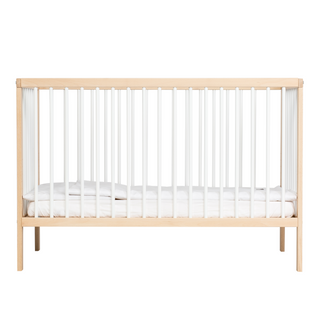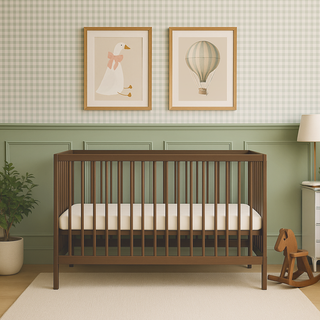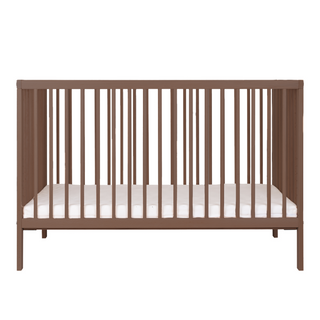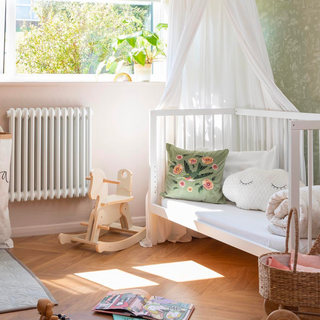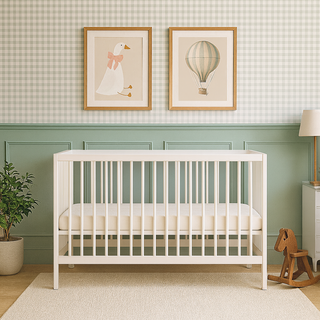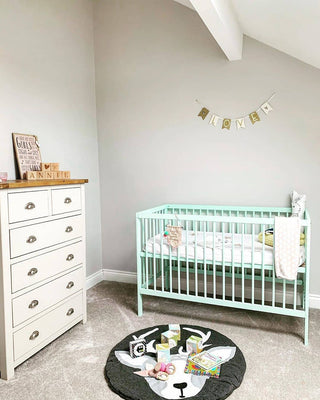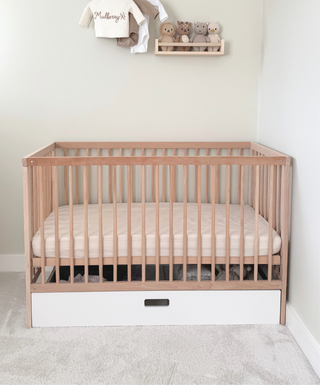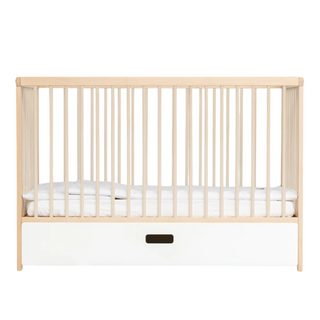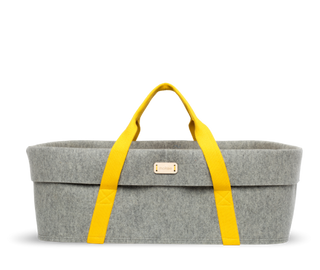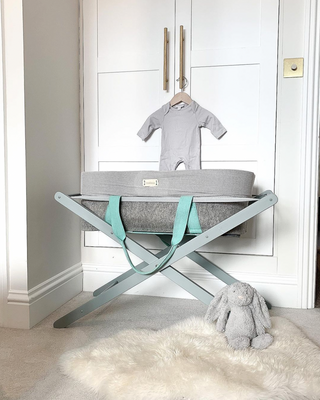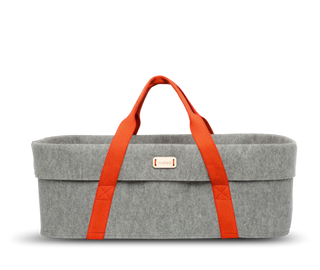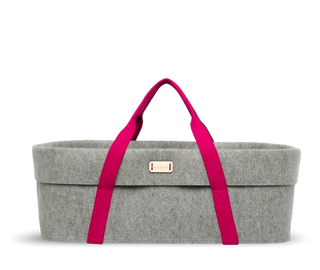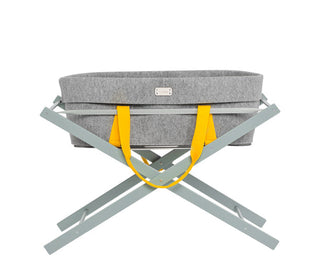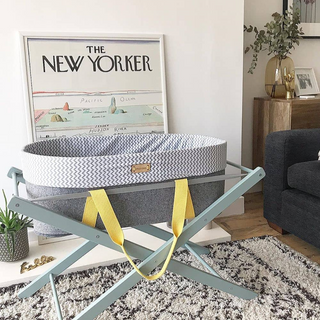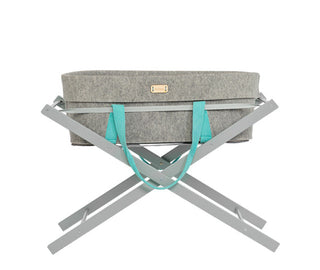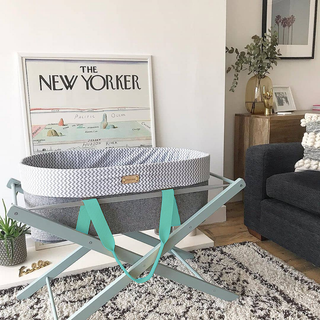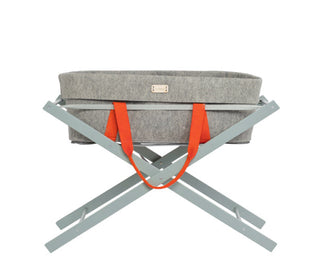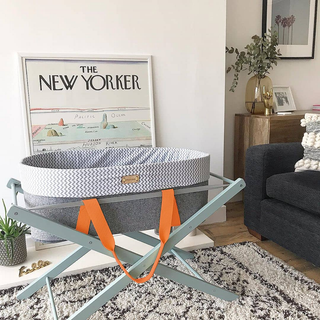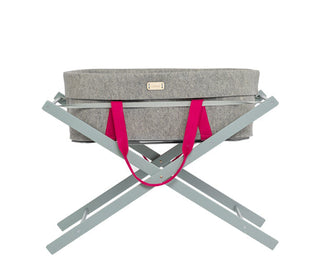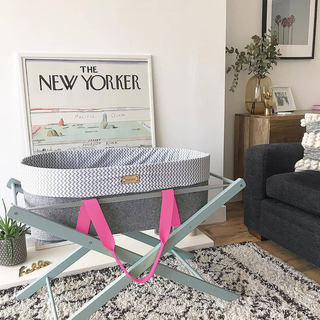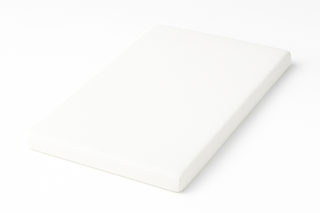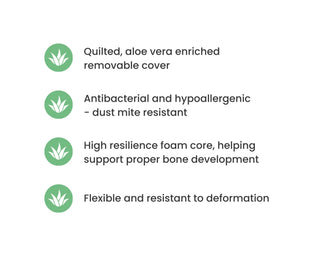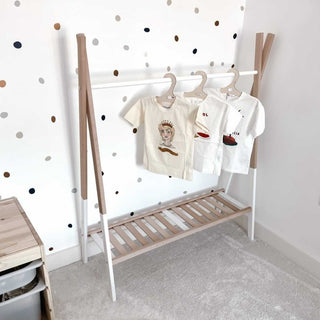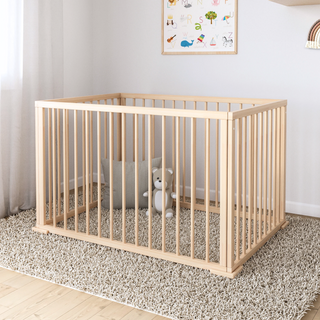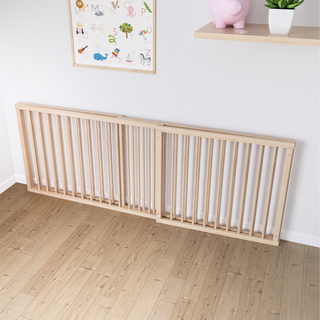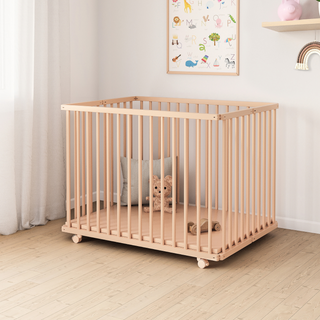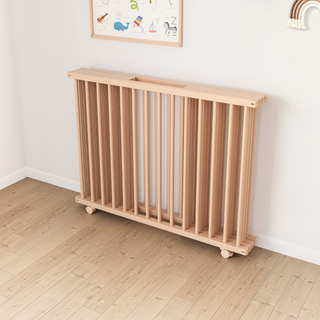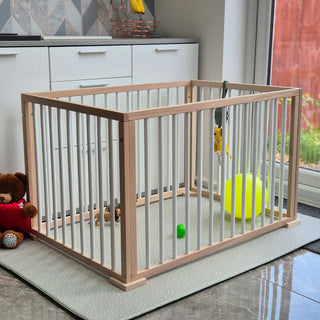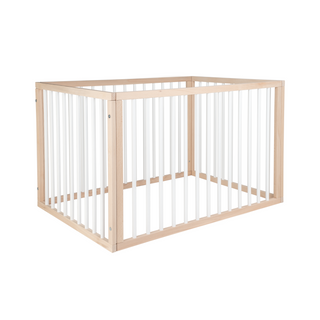3 min read
by Suzi Smith •
Read the blog post or listen to the podcast on Spotify:
Hazel, AKA, TwinningitUK, is a maternity nurse and sleep specialist. Here she gives her tips to getting babies sleeping well.
Get into good habits when you start out, it builds a really strong foundation for babies sleeping well. Hazel is a gentle sleep coach, looking at sleep from an holistic approach; looking at everything that’s going on in the baby’s world and the parent’s family to determine what routine the baby should be in when it comes to sleep.
A lot of parents get worried that their baby is not a ‘normal sleeper’. So, it’s about talking about what is normal and what isn’t. 80% of babies still wake in the night up until 2 years old, so it’s perfectly normal to have a baby who doesn’t sleep through the night. In fact, waking in the night is safe for babies, try and remember this.
Safe sleep advice, how to put a baby to sleep safely
Keeping the baby in the room with you for the first 6 months is advised, it also makes life easier as they’re right next to you. The temperature of the room needs to be between 16-20 degrees. Dress the baby according to the temperature. If it’s a hot day keep the curtains closed all day to keep it cooler. If it is excessively hot, you can open a window but don’t have the baby in line with the draft because the draft will dry their airways out.
In winter, keep the room temperature between 16-20 degrees and this actually feels cold to walk into but it’s how it should be. Layer them, if it gets too warm you strip them off. Sleep bags are available now and are great. Use a 1-1/5 tog in summer and in winter, a tog 2. An empty cot is needed, baby’s cot needs to be completely empty. A blanket can be in there, providing it’s really tucked in at the sides. No decorations or teddys, they are not safe. Ensure that baby’s feet are at the bottom of the cot. They tend to shuffle around, so keep them at the bottom of the cot. Place them on their back when you put them down to sleep. When they start to roll, that’s fine for them to roll onto their front.
The mattress is really important. If you can’t afford a brand new cot, get a new god quality mattress for the baby and it needs to be firm.
Newborn sleeping
The 4th trimester is the first 12 weeks of life with a baby. There is a lot of adjustment going on, humans are the only mammal that is born and helpless and needs their parents 24/7. For the first couple of weeks, allow that time to bond with your baby as much as possible, have lots of skin to skin time, it will reduce their stress levels and help them sleep better.
Babies are born with two fears; fear of falling and the fear of loud noises. Startle reflex is when a baby is falling asleep and then suddenly moves due to either a loud noise or a fear of falling. Swaddling a new baby can be effective if they have a strong startle reflex. This can help them sleep. Until 12 weeks babies don’t produce melatonin, which is the hormone which helps us fall asleep. Babies don’t have that function in the brain to produce that hormone until they are 3 months old. If you have a premature baby, it’s important to work off their corrected age. If a baby is born at 36 weeks, this is 4 weeks early, so they may not start producing melatonin until they are 16 weeks. So work off their corrected age. They don’t know the difference between night and day so it’s parents’ job to teach them.
Up until 6 weeks babies will sleep and go to the loo, that’s pretty much it. You might get 15-20 minutes of awake time, but you won’t get much out of them other than that, so expect them to sleep a lot.
If however your baby is sleeping continuously and not feeding well or not producing 6-8 wet nappies a day then speak with you Health Visitor or midwife.
6 weeks
At 6 weeks babies have a growth spurt so they can tend to get irritated towards the end of the day. Their calorie intake needs are increasing. You might find that they cluster feed if you are breastfeeding (short bursts of frequent feeding) as they are needing more milk and cluster feeding will help to increase your milk supply. If you are bottle feeding you may find that they want a higher volume of milk. Let them lead you, this phase will pass.
12 weeks
At 12 weeks, you may notice that they are more awake during the day, they are more interested in things around them. You’ll notice a sleep pattern beginning to develop. They’ll have around four naps a day. It’s good to get them into a routine, let baby lead you on this and look out for when they are showing signs of tiredness and how long them can stay awake for.
Sleep promotes sleep
Hyperactivity is a sign of extreme exhaustion. Learn your baby’s sleep signs as best as possible. Be responsive to your baby. Babies cry for hunger, tiredness, overtired, if they’re too hot or too cold. Do not judge a baby’s temperature on their hands or feet. Hands and feet are the first things that are cold. Feel the back of their necks to see how hot they are. Are they having enough to drink, have they had enough sleep during the day? Sleep promotes sleep, the more over tired a baby is in the day, the harder it is to sleep in the night. It’s good to teach babies to sleep well in the day so that in the night they have the skills to fall back to sleep independently.
Sleep regression
Sleep regression or sleep development happens at around 4 months, 7 months and 12-18 months and it’s when a baby’s sleep pattern changes. At 4 months they become more adult in how they sleep. They’ll fall into different stages of sleep, lighter stages of sleep. They are not used to this so it’s strange for them. They are asleep but they can hear things going into the lighter stages of sleep. Normally this can take a week to two to adjust. White noise is great as it can drown out any outside sound influences. At 7-8 months there is another change. Your baby is learning to roll and baby wants to practice their skills in their cot. They want to practice this at maybe 1am, but don’t worry, this passes. Ways to combat this is to allow them to have lots of tummy time in the day and not in their cot. At 12-18 months stage, when a baby is starting to walk, the baby stands up in the cot and wants to walk around. These are all natural stages of developments and it’s a phase. When this is happening try and support them with giving practice during the day so that at night time they’ve got it out of their system.
Baby sleeping bags, mattresses and lighting
To use a baby sleeping bag or blanket. If you have a baby under 8-9 pounds you need to ensure that the sleep bag is OK for a baby of a certain weight. Make sure it fits nice and snuggly on them and is not pulling up when they shuffle down. You can buy various tog levels for it. Cellular blankets are great. They generally come in one thickness, and work better for newborns. Sleep bags are a great sleep association, when they go into the sleep bags, the babies associate sleep with them, so it makes them ready to go to sleep. Waterproof mattress protectors are great, they are usually breathable so just have a look at when you buy it. When they are waking for the morning, have the room really light. In the evening, have the lights dim. After 12 weeks, as the darkness kicks in it triggers a message to the brain to start melatonin which triggers them to feel sleepy. Red lighting in a nursery is great as it helps babies sleep, but blue lighting is detrimental to a baby’s sleep. It really interrupts their sleep, so look for a red lamp or bulb with a very low wattage.
Top Tip
If you’re having issues with moving a baby from you to their sleep space without waking them, to make them feel secure after being moved and so they feel like they are still on you, use a hot water bottle and put it in the Moses basket. Warm the space for a few minutes and then remove it. Then put baby in and put a firm hand on their chest so baby still thinks that you are still there. This works wonders.





